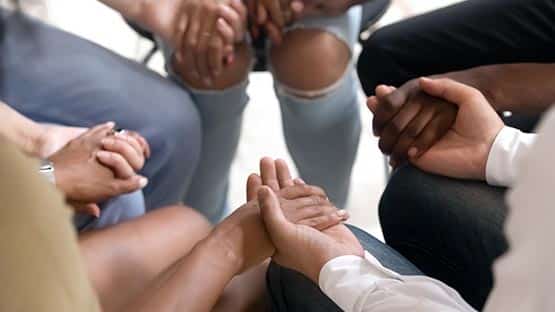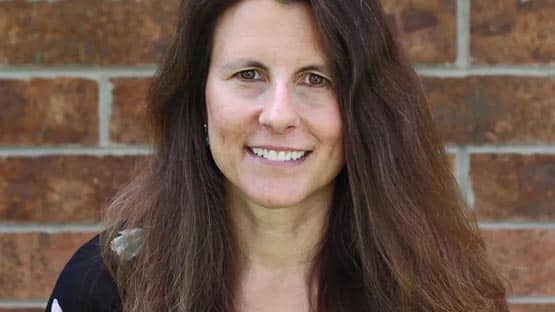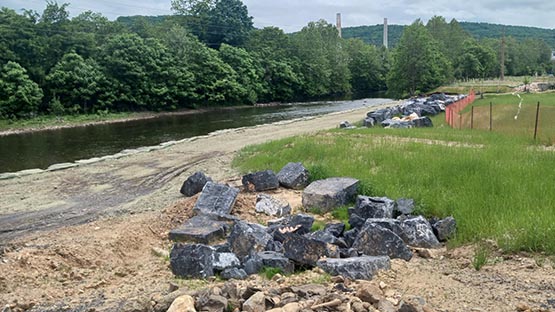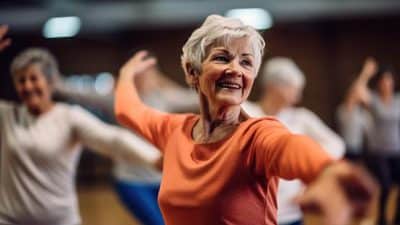
Three senseless murders shook the University of Virginia, its students, administrators and a football team, leaving everyone directly affected traumatized by the sudden loss of life.
Three UVA students and athletes – Devin Chandler, Lavel Davis Jr. and D’Sean Perry – lost their lives at the hand of another student in the late-night hours of Nov. 13.
In the wake of the tragedy, students were locked down for 10 hours. Emergency room personnel did all they could to save the lives of those who were rushed to their doors. Students whose lives were spared on a bus where the murders took place were left with images and sounds that no one should ever have to endure.
Everyone who knew these young men – and many who didn’t – were faced with emotions and grief, some dealing with these intense feelings for the first time in their young lives.
How should these young people, doctors, administrators and football players move on from such an unspeakable tragedy?
Integrating tragedy into your life
Mental health professional Stacey Freedenthal, PhD, LCSW, is an associate professor at the University of Denver Graduate School of Social Work, psychotherapist and consultant. She has worked as a suicide hotline counselor and worked in crisis settings including a psychiatric emergency service, rape crisis center and hospital emergency room.
Freedenthal said that moving past what happened may not be possible especially for the students who were present when the shooting took place.
“Moving past may not be possible,” she said. “It may be more integrated because this is trauma. They’ve experienced an acute trauma and are at risk for post-traumatic stress disorder.
“And for the community as a whole, it’s traumatic that this happened. There’s often an expectation or pressure for people to get over things, rather than to integrate it into their life,” she said.
In other words, you don’t necessarily move on, but what happened, in a way, becomes a part of you.
The importance of social support
Since the tragedy happened on Nov. 13, the entire community and team have grieved together through a public memorial at John Paul Jones Arena and more privately, the teammates attending the funerals of their three comrades who were lost to the unspeakable tragedy.
The remaining two games of the season were cancelled in the wake of the senseless deaths. The football team just wasn’t ready to go back on the field without their teammates – and it appears the staff, after seeing the team in the weight room, decided no one was ready emotionally to be back on the field.
“There’s the immediate need for the logistical aspects of going to the funeral, but also grieving,” Freedenthal said.
With Christmas break on the horizon for students and administrators, and a break in organized football activities until spring practice in March, it is possible that the team may lose the connection with one another when they may need it most.
“Social support is important,” Freedenthal said. “The impulse might be withdraw and isolate. The more social connection can be encouraged and fostered, the better.”
What to say to someone after trauma

Freedenthal said some people prefer to take care of themselves – and don’t want to be around other people – so it’s hard for those trying to help to know what to do.
“I think a lot of people are afraid of hurting the person – like if I bring it up, then it’ll make them sad,” she said.
It’s normal, according to Freedenthal, to not know what to say, but that doesn’t mean one shouldn’t say anything.
“It’s much more painful if people say nothing,” Freedenthal said. “People who have been through trauma, generally speaking, they appreciate when the elephant in the room is acknowledged, and when it’s not glossed over.”
She also said that it’s generally not helpful to try to give reasoning, advice or suggestions. While many of those sentiments are well meaning, it can have unintended consequences.
For example, she said, being told that “God has a reason” may give solace to people who are religious, but for some people, that could make them feel even more alone. Because, she said, one might think, what could possibly be the reason?
Validating the feelings of someone grieving or after a trauma could be helpful, she said. For example, giving verbal feedback and appropriate body language to show you are listening.
“I think people are constantly offering suggestions for how to feel better when sometimes the person just needs to be heard,” Freedenthal said.
How the University might move forward
She said as the University goes forward, she wouldn’t want them to require students or players to do therapy, though she is sure the school has its own protocols.
“It’s important that people have a choice to make, but they (the University) could provide the opportunity (for therapy). Opportunity versus requirement.”
While the full team will likely not get back together until spring practice, one might wonder how and if a team can rebound from such a tragedy.
“People are very resilient,” Freedenthal said. “I know some people don’t like that word because they feel it minimizes the pain and the suffering of people who haven’t recovered from trauma.
“But the reality is that most people who go through trauma, they don’t experience post-traumatic stress disorder,” she said. “It’s terrible what happened, and I don’t want to minimize it by any means.
“I don’t think it means that there’s not the possibility for recovery and healing, and eventually moving forward, while having integrated the experience in their life.”
If you or someone you know needs support now,
call or text 988 or chat 988lifeline.org.











